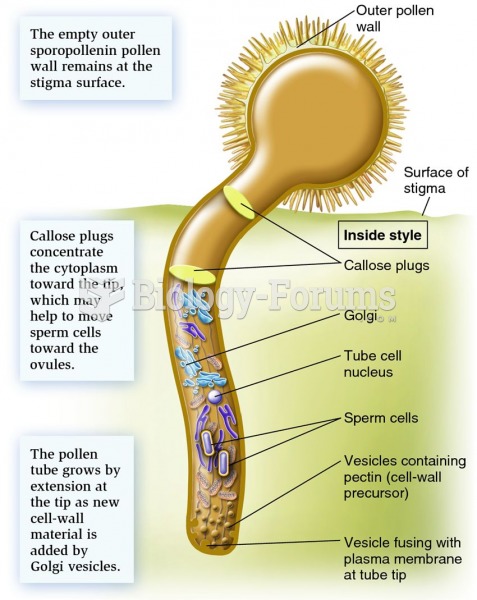|
|
|
Opium has influenced much of the world's most popular literature. The following authors were all opium users, of varying degrees: Lewis Carroll, Charles, Dickens, Arthur Conan Doyle, and Oscar Wilde.
After 5 years of being diagnosed with rheumatoid arthritis, one every three patients will no longer be able to work.
IgA antibodies protect body surfaces exposed to outside foreign substances. IgG antibodies are found in all body fluids. IgM antibodies are the first type of antibody made in response to an infection. IgE antibody levels are often high in people with allergies. IgD antibodies are found in tissues lining the abdomen and chest.
People about to have surgery must tell their health care providers about all supplements they take.
Your heart beats over 36 million times a year.
 These species are all at risk of extinction. Species with “slow†life-h
These species are all at risk of extinction. Species with “slow†life-h
 Life-history cube, a classification of fish, mammals, and altricial birds based on three dimensionle
Life-history cube, a classification of fish, mammals, and altricial birds based on three dimensionle





